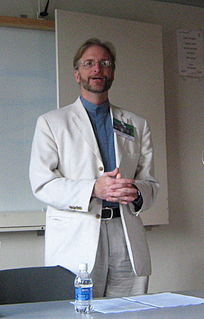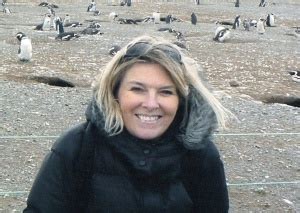A Quote by Elmore Leonard
These are rules I've picked up along the way to help me remain invisible when I'm writing a book, to help me show rather than tell what's taking place in the story.
Related Quotes
You could perhaps better tell the story of a place by writing of a tiny village as a sort of prism into the bigger issues the culture was facing. It struck me as a better way to learn about a place, or at least a different way, than just going to interview the president. So I have often tried to tell the story of a place through people there. But I'm just amazed.
I didn't know how story worked. So, when writing the screenplay, people introduced me to the science of it. And I'm grateful. I'll probably use that information for the rest of my career, in terms of writing novels or writing stories. And then, of course, to help me live a better story, a more meaningful story
Many musicians are fabulously skilled at playing the black dots on the printed page, but mystified by how the dots got there in the first place and apprehensive of playing without dots. Music theory does not help here; it teaches rules of the grammar, but not what to say. When people ask me how to improvise, only a little of what I can say is about music. The real story is about spontaneous expression, and it is therefore a spiritual and a psychological story rather than a story about the technique of one art form or another.
You cannot help another who will not help him or herself. In the end, all souls must walk their path - and the reason they are walking a particular path may not be clear to us... or even to them at the level of ordinary human consciousness. Do what you can to help others, of course. Show love and caring whenever and wherever you can. But do not get caught up in someone else's "story" to the point where you start writing it.
In the course of writing a book I'll produce loads of pieces of paper to help the novel itself. Diagrams, charts, family trees. And at the end of each book I'll pack it all away. It takes me a while to do it - it's like a relationship that way; there's a period of letting - go, of grief, in a way - but then I box it up, label it, and put it in the attic.
In Washington and Moscow they are saying, 'Man has finally come of age; he doesn't need paternalistic help.' Which is another way of saying, 'We have abolished that help, and in its place we will rule,' offering no help at all: taking but not giving, ruling but not obeying, telling but not listening, taking life and not giving it. The slayers govern now, without interference; the dreams of mankind have become empty.
My medications make me easier to deal with. They don't interfere with my creativity or turn me into a zombie or dull my real personality. They help me connect with people, allow me to stay calm when situations seem overwhelming, and help keep my thoughts from racing out of control. They help me leave the house when I'm scared to. They help.
The rewrites are a struggle right now. Sometimes I wish writing a book could just be easy for me at last. But when I think about it practically, I am glad it's a struggle. I am (as usual) attempting to write a book that's too hard for me. I'm telling a story I'm not smart enough to tell. The risk of failure is huge. But I prefer it this way. I'm forced to learn, forced to smarten myself up, forced to wrestle. And if it works, then I'll have written something that is better than I am.
Vera said: 'Why do you feel you have to turn everything into a story?' So I told her why: Because if I tell the story, I control the version. Because if I tell the story, I can make you laugh, and I would rather have you laugh at me than feel sorry for me. Because if I tell the story, it doesn't hurt as much. Because if I tell the story, I can get on with it.







































